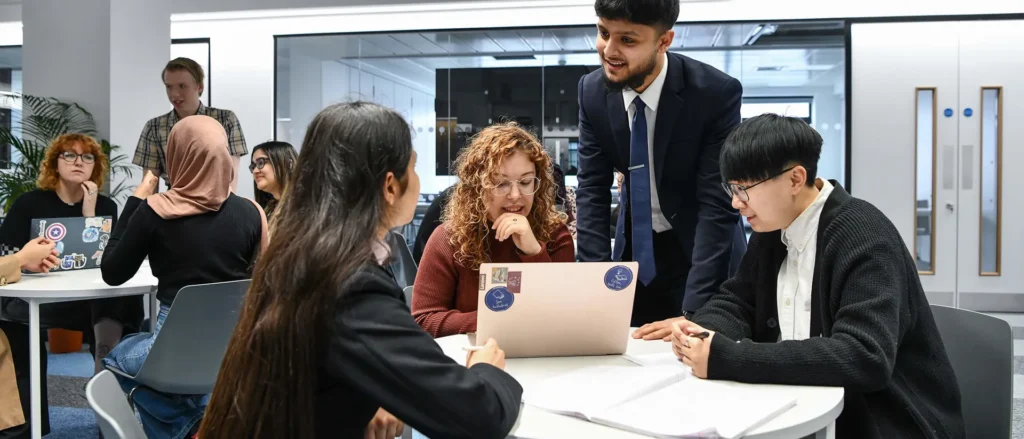When you’ve spent your younger years growing up in care, things don’t just ‘bounce back’ once you turn 18. The route into adulthood is stacked against you: the support disappears, the mental scars stay, and accessing help feels like hitting brick walls. That’s why the new COLLAGE study, launched by the University of Birmingham and partners, is not just research, it’s a potential game-changer.
What is the COLLAGEStudy About?
The COLLAGE (Care-experienced yOung peopLe’s mentaL heAlth help-seekinG bEhaviours) project is an NIHR-funded, 18-month national deep dive into how care-experienced young people (aged 13–25), especially those who are LGBTQ+, neurodivergent, racially minoritized, or disabled, seek mental health support. And here’s the difference: they’re not just subjects, they’re co-creators, shaping how the study runs and how findings get used.
The goal? Build a full-on, inclusive picture of the hurdles these young people face and what actually helps them. There’ll be surveys, interviews, global evidence reviews, digital tool design, and free public events to share findings. It’s not about talking at these young people. It’s about working with them.

Why The COLLAGE Study Matters — Straight Up
- Care leavers struggle with mental health at epidemic levels. Between 50–80% meet the criteria for diagnosable conditions, and many fall into a gap between child and adult services.
- Barriers aren’t just personal, they’re systemic. Instability, trust issues, long waitlists, and disjointed services make getting help feel impossible.
- Lost in the system. When young people exit care, they often drop off the radar, and services vanish. That’s when PTSD, anxiety, depression, and self-medication often take hold.
The COLLAGE study is powerful because it’s flipping the script. Instead of asking “What’s wrong with them?”, it’s asking “What do they actually need?”
Real Voices, Real Change
Previous research shows that young people just want to be heard, not pathologized. What helps? Trusted adults and stable relationships, flexible services, peer support, choice in how they engage, honest communication. They don’t want rigid systems, they want flexibility and respect.
Now, COLLAGE is taking it further by co-producing tools and resources that youth care about, from apps and guides to policy recommendations. This is how change starts: with the voices of people who actually live it.
What The COLLAGE Study Means for You
If you’ve ever felt judged, misunderstood, or let down by a system that chopped you off at 18, this study is a sign things can shift.
Here’s how:
- Representation in research. Seeing care-experienced, LGBTQ+, neurodivergent youth in the design phase means services may finally reflect you, not just pictures of young people.
- Digital tools that work. Resources built with young people are more likely to be practical and used. No boring manuals—real, youth-tested stuff.
- Pressure on policymakers to act. When real voices demand inclusive support, it can’t be ignored.
- Everyday peers matter. Supporting someone through care, mental health, or transitions. Listen, validate, and stay flexibly available.

What Can Young People Do Right Now?
- Share your story if this reflects your experience. The COLLAGE team wants your voice, use the study’s social links or contact Birmingham’s press office.
- Support community-focused action. Get involved with charities like The Mix (free peer-chat and helpline for under-25s), or local projects using creativity and peer support.
- Call for trusted support—whether it’s a mentor, teacher, or social worker, someone who believes you, pushes for help, refuses to let you fall through.
COLLAGE Study: Wrapping It Up
It’s not just another academic study, it’s an urgent lifeline. The COLLAGE project is shining light on unheard experiences, building tools with those who really know, and demanding system change. This is what inclusion and equity look like, rooted in real voices and real needs. For care-experienced young people navigating adulthood, mental health, and identity, this study could be the turning point.
You’re not invisible. You’re not alone. And you’re not irrelevant. The future starts with listening—and acting.
Thank you for reading, click the link to read more of our Most Recent Articles
Zita Salum, a British, Tanzanian journalist with a London heart, is making waves in the world of media. Born and Raised in Hackney London, she discovered her passion for storytelling at a young age. Her journey began as an admin for the Inside Success magazine, but her talent quickly shone through. Zita's ability to craft compelling narratives and her knack for capturing the essence of a story led her to become an editor for the magazine.
From there, her career soared. Zita has contributed to a diverse range of publications, including the prestigious W magazine, showcasing her versatility as a writer. Her expertise spans across industries such as music, corporate, political, sports, arts, and fashion. Beyond her written work, Zita has also excelled in broadcast journalism. Her natural ability to connect with interviewees and her engaging hosting style have made her a sought-after talent in the industry.
In her free time, Zita is a dedicated networker, attending industry events and immersing herself in the latest trends. She is also passionate about investigative journalism and has produced creative documentaries that shed light on important issues. With her talent, drive, and unwavering commitment to her craft, Zita Salum is undoubtedly a rising star in the world of journalism.




Leave a Reply
You must be logged in to post a comment.